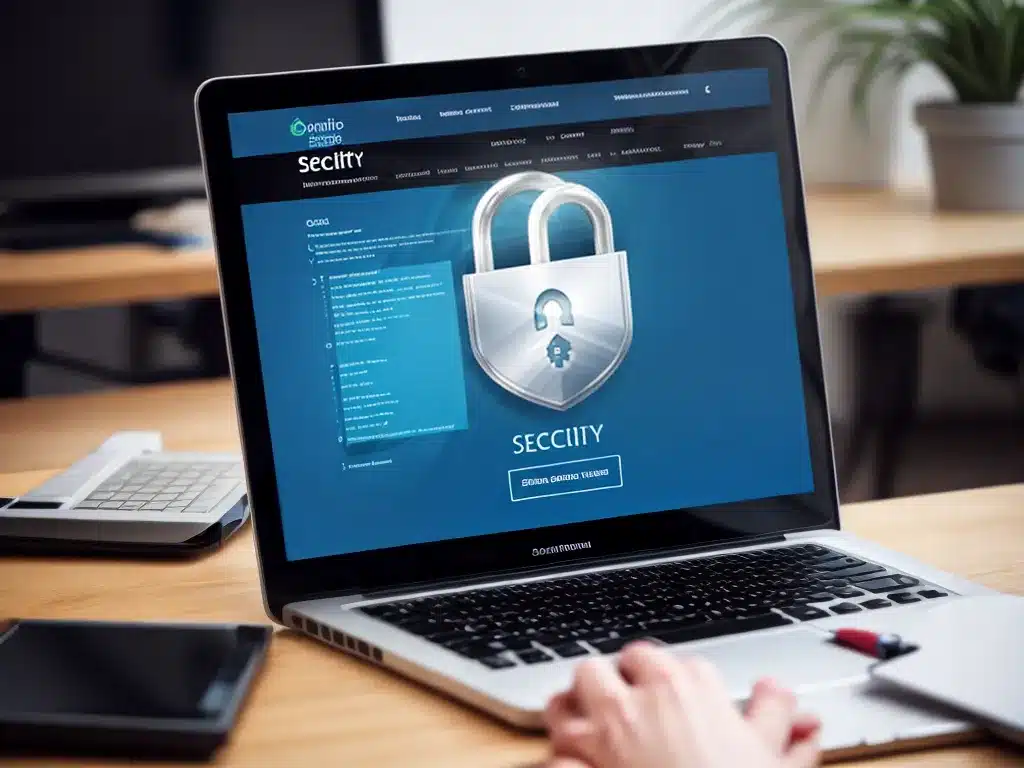
Having a secure website is crucial for any small business today. With more and more commerce and operations moving online, weaknesses in your website security can have major consequences. Here are some key website security essentials that every small business should have in place:
Keep Software Updated
Keeping the software on your website up-to-date is one of the most important things you can do to maintain security. Outdated software often has vulnerabilities that hackers can exploit to break into your site. This includes:
- The content management system (CMS) your site runs on like WordPress or Drupal
- Any plugins, themes or extensions your CMS uses
- The programming language your site is built in like PHP or JavaScript
- The server software like Apache or Nginx
Set up automatic updates wherever possible. Also manually check for updates regularly and install them promptly. Using outdated software is like leaving your virtual door wide open for attackers.
Use Strong Passwords
Having strong passwords for all administrator and user accounts is essential. Common passwords are easy for attackers to guess through brute force.
Some tips for creating strong passwords:
- Use 12+ random characters including upper/lowercase letters, numbers and symbols
- Avoid dictionary words and personal info
- Use a unique password for each account
- Change passwords every 90 days
- Use a password manager to generate and store them securely
Enabling two-factor authentication adds an extra layer of security as well.
Limit User Permissions
Only give users the permissions they need to do their job – nothing more. The principle of least privilege helps limit damage if an account is compromised.
For example, regular employees rarely need access to admin settings or user accounts. Limit them to only what they require for their role.
Also, avoid having shared login credentials between team members. Give each employee their own unique user account with specific access.
Sanitize & Validate All Inputs
The most common attack vector for malicious actors is entering dangerous inputs into forms and fields.
Sanitizing and validating all user inputs from web forms, search bars or URLs is critical:
- Strip out potentially malicious code and scripts like
<script>tags - Validate data types, length and formats
- Escape special characters to prevent things like SQL injection attacks
- Limit character length and reject suspiciously long inputs
- Set default allowlist instead of blacklist for inputs
Never trust or display raw user inputs without proper sanitization.
Encrypt Sensitive Data
If your site collects or transmits any sensitive user information, it is vital to encrypt it properly in transit and at rest:
- Use HTTPS on your website with a valid SSL certificate to encrypt connections
- Hash and salt stored passwords, credit cards or personal data
- Encrypt sensitive data in databases using encryption schemes like AES-256
- Mask credit card numbers showing only last 4 digits
- Anonymize customer data used for analytics and advertising
Following data privacy best practices like GDPR is also important for retaining user trust and preventing compliance violations.
Monitor Traffic for Anomalies
It helps to have visibility into overall traffic patterns and activity on your website. Many attacks exhibit unusual behavior that can tip you off, like:
- Sudden spikes in traffic from a single IP range
- Multiple failed login attempts in a short time
- Unusual traffic volumes at odd hours
- High volumes of 404 errors
Using site analytics and server access logs to establish a baseline for normal behavior makes it easier to spot anomalies that could indicate an attack.
Backup Your Website
Having regular automated backups of your entire site is critical to recover from data loss or corruption. Back up:
- Your site’s files and folders
- All databases connected to the site
- Source code for your custom apps and scripts
- Configuration files for your CMS and server software
Test restoring from backups regularly to ensure you can get the site back online quickly after an incident.
Following these website security essentials will go a long way in protecting your small business from the most common threats and attacks. But it requires ongoing vigilance as techniques and technologies evolve rapidly. Taking a layered defense approach can help minimize risks.












